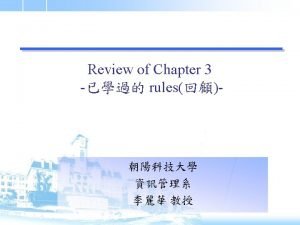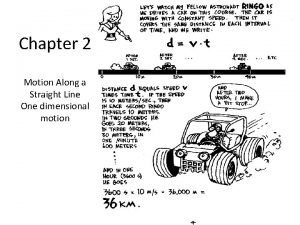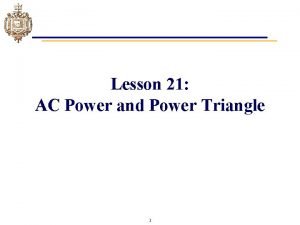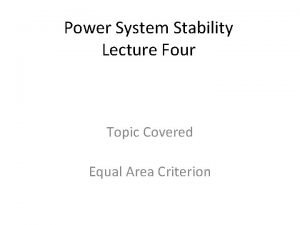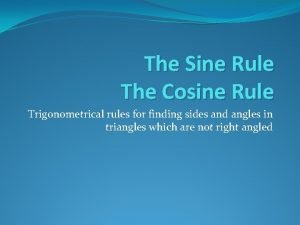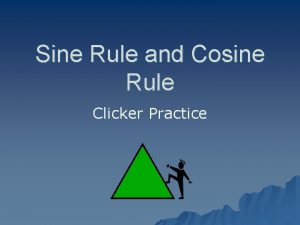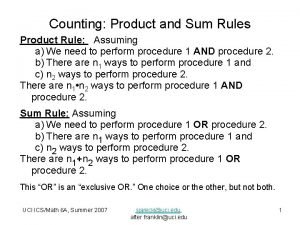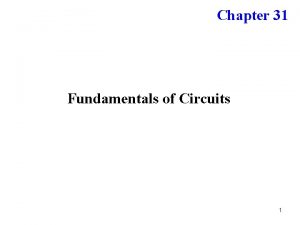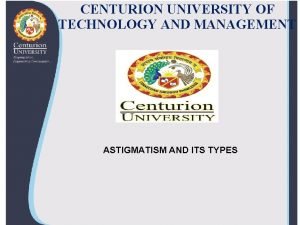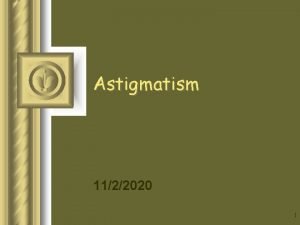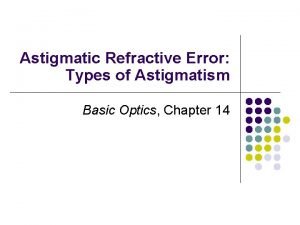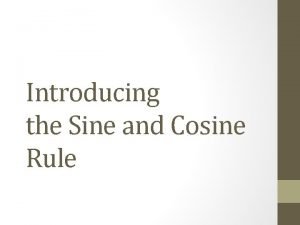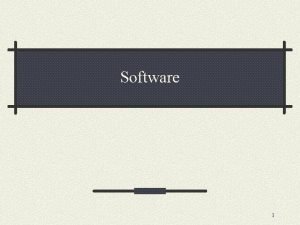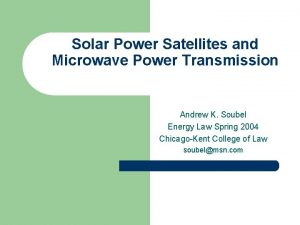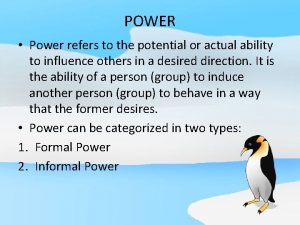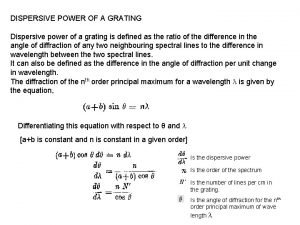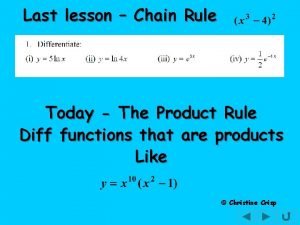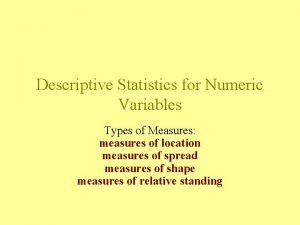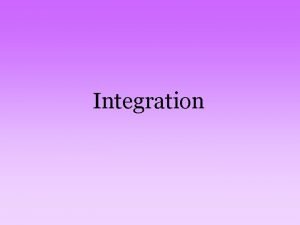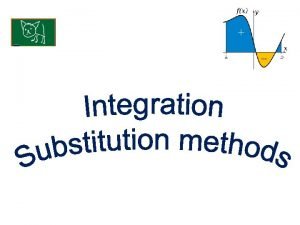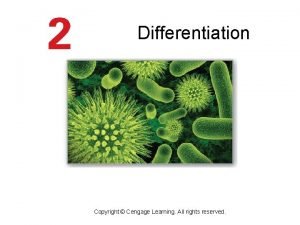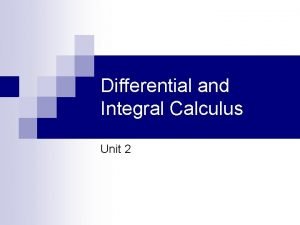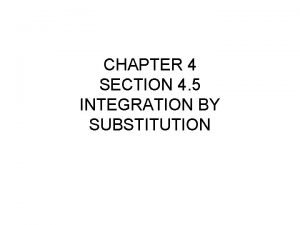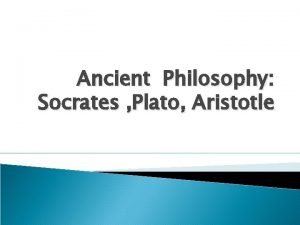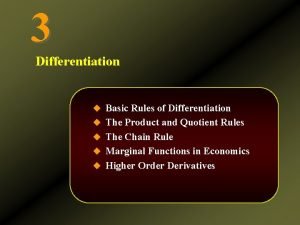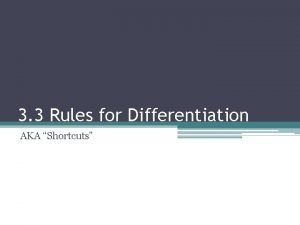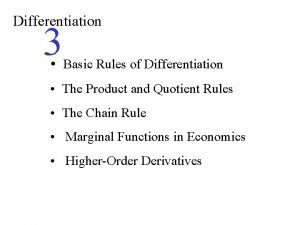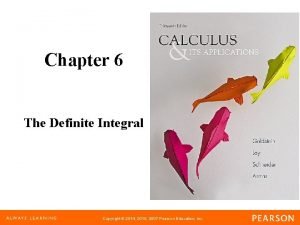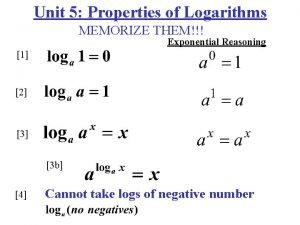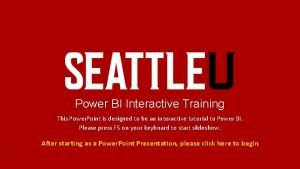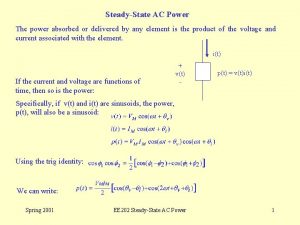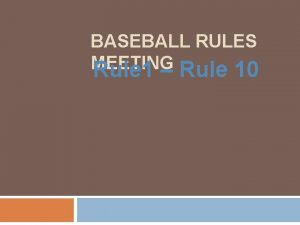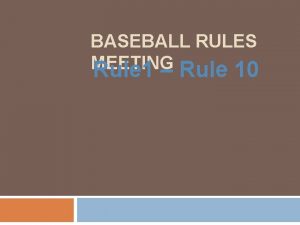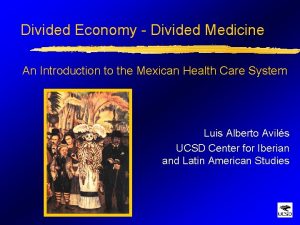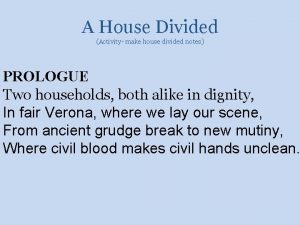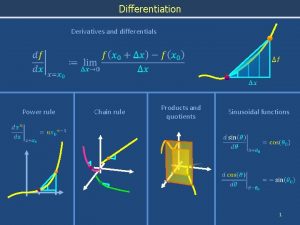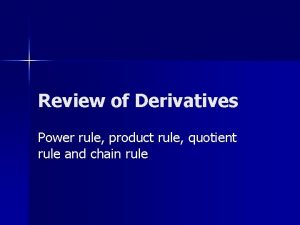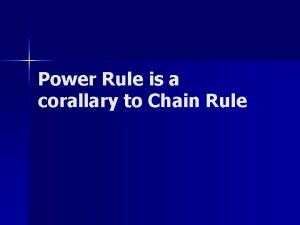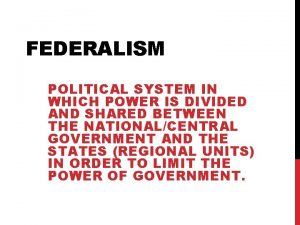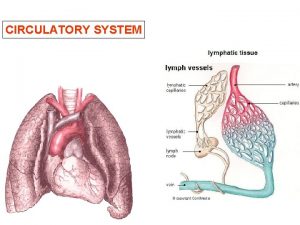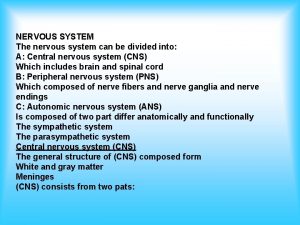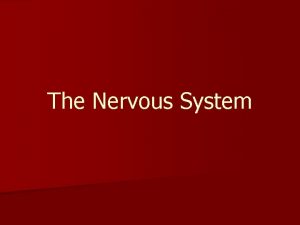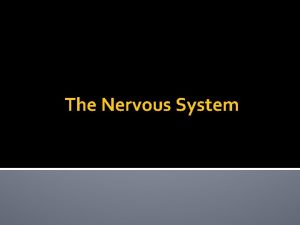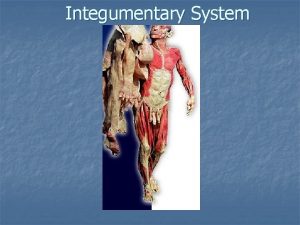System of rule where power is divided and











































- Slides: 43

• System of rule where power is divided and shared among federal and state governments • • • Federal Gov has some powers only to itself State Govs have some powers only to themselves Federal gov and state govs share some powers

Disaster Relief • Who’s job was it to clean up New Orleans and the rest of the coast after Katrina?

No Child Left Behind • Should the national gov’t step in to regulate school performance?

What is Federalism? • Federalism – Two or more governments exercise power and authority over the same people in the same territory • OR… the relationship between the federal government (circle) and the state governments (squares)

Federalist #51 • Defends the Constitution • Explains why a strong gov’t is necessary • “If men were angels, no government would be necessary. If angels were to govern men, neither external nor internal controls on government would be necessary. ” • "the constant aim is to divide and arrange the several offices in such a manner as that each may be a check on each other. " • Defends separation of powers between state and national gov’t

Number of U. S. Governments

WHY? Federalism – Advantages/Disadvantages • • Combines strong states with a central government strong enough to maintain order Accommodates the large geographical size of the country Allows state governments to train national politicians and test new ideas Allows for many political subcultures • • • May let state interests block national plans May perpetuate inequalities across states May fuel overactive federal expansion

Powers in the Constitution • Expressed/Enumerated/Delegated - Those powers directly written in the Constitution, 27 total • • Reserved – Powers left for the states • Inherent – Powers that are necessary for a branch of government to get its job done • Concurrent – Those powers shared by the national government and the states Implied – Those powers indirectly written in the Constitution, Found in Art. 1 Sec. 8 Clause 18

1. create and collect taxes, duties, imposts and excises 2. pay debts 3. provide defense and general welfare 4. borrow money 5. regulate commerce 6. create rules for naturalization… 7. create rules for bankruptcies 8. coin money 9. establish post offices 10. post roads 11. granting patents and copyrights 12. DECLARE WAR 13. TO RAISE AND SUPPORT ARMIES 14. TO PROVIDE AND MAINTAIN A NAVY 15. to call militias (national guard) to uphold the Constitution 16. use the national guard to suppress insurrections and invasions 17. To make all Laws which shall be necessary and proper for carrying into Execution the foregoing Powers, and all other Powers vested by this Constitution in the Government of the United States, or in any Department or Officer thereof

To make all Laws which shall be necessary and proper for carrying into Execution the foregoing Powers, and all other Powers vested by this Constitution in the Government of the United States, or in any Department or Officer thereof

Article IV of the Constitution • Full Faith and Credit: respect contracts and judicial orders entered into in another state • (Article IV, Sec I) • Privileges and Immunities: same rights state to state as provided by the national government • (Article IV, Sec II)

State Powers Under the Constitution • • Article I • Allows states to determine time, place, and manner of elections for House and Senate representatives Article II • Requires that each state appoint electors to vote for president Article IV • Privileges and immunities clause • Republican form of government • Protection against invasion Tenth Amendment • States’ powers described here • Reserve or police powers


1. create and collect taxes, duties, imposts and excises 2. pay debts 3. provide defense and general welfare 4. borrow money 5. regulate commerce 6. create rules for naturalization… 7. create rules for bankruptcies 8. coin money 9. establish post offices 10. post roads 11. granting patents and copyrights 12. declare war 13. to raise and support armies $$$ 14. to provide and maintain a navy 15. to call militias (national guard) to uphold the Constitution 16. use the national guard to suppress insurrections and invasions • How have each of the following been used to expand federal power: pwr to tax & spend, NP clause & commerce clause: • How have each increased pwr of fed govt relative to the states? • American with Disabilities Act • Civil Rights Act of 1964 and • Clean Air Act • Is it or to have this in the Constitution? Why? • LOOK at other PP!!! For FRQ

How to answer? • • Tax and spend pwr • • Who can exercise the pwr? Response must describe both the pwr to tax and the pwr to spend NP Clause • • Who can exercise this pwr? Response must include what the pwr is Commerce clause • • Who can exercise this pwr? Response must include what the pwr is For each law: include at least one provision of the law and explain how the provision increased the federal pwr over the states

4 pts – 1 pt per description, 1 pt for explanations Tax & Spend Power Must indicate Congress has power to tax and spend Must describe both power to tax and power to spend NP Clause/Elastic Clause Must indicate Congress exercises this power Must indicate the power to pass laws Commerce Clause Must indicate Congress exercise this power, its an exclusive federal power!! Must refer to regulation of interstate commerce, foreign commerce/trade or commerce with NA tribes Related question – how has the commerce clause been used to expand the power of the federal govt over the states **** Again, regulating commerce is an exclusive federal authority!! Supreme Court makes decisions that increase the power of the federal government by interpreting the commerce clause broadly*** 2 pts – 1 pt earned for identifying a provision of one of the laws, 1 pt earned for explaining how provision increased federal pwr over the states

To Have or Not To Have • States must determine policies regarding…

• States cannot Denied Powers • Enter into treaties • Coin money • Impair obligation of contracts • Cannot enter into compacts with other states without congressional approval • Congress cannot • Favor one state over another in regulating commerce • Cannot lay duties on items exported from any state (No State Tariffs)

ARTICLE VI OF THE CONSTITUTION • 1. All national debts will be honored • 2. Supremacy Clause {constitution is supreme law of the land national laws pre-empt state laws} • U. S. Constitution • Laws of Congress • Treaties

Mc. Culloch v. Maryland (1819) Background • Bank of the US operated in Maryland • Maryland did not want Bo. US to operate in state, competition unwanted, unfair • Maryland taxed the bank to put it out of business • Mc. Culloch, Bo. US employee, refused to pay the state tax

Mc. Culloch v. Maryland (1819) • Is a Bank of the US Constitutional? YES. The national gov’t has certain implied powers that go beyond delegated powers. US needs a national bank for borrowing, lending, holding minted money, etc. All of which are delegated powers.

Mc. Culloch v. Maryland (1819) Can a state tax the federal gov’t? -NO. The federal gov’t is supreme. Since the Bo. US is constitutional, only the feds may tax it. -John Marshall reaffirmed Supremacy Clause and Elastic Clause -National (Federal) Gov gets STRONGER

Commerce clause • Art. I, Sec. 8, Cl. 3 – • “The Congress shall have power - To regulate commerce with foreign nations, and among the several states, and with the Indian tribes. ” • Congress has used the elastic clause to stretch this power • What is commerce? • Congress given the power to regulate commerce between foreign countries and US as well as state to state… they control business law.

Gibbons v. Ogden (1824) • 1824 – aka “The Steamboat Case” • Ogden received a state licensed monopoly to run a ferry across the Hudson River • Gibbons also saw the potential of the traffic between NJ and NY and obtained a federal license. • Ogden sued saying he had the valid state license, even though Gibbons had US license

Gibbons v. Ogden (1824) Result – Gibbons wins • Expanded national power in all areas of commerce law because nation overruled state in interstate trade issues • Fed Gov’t gets STRONGER • All trade today is primarily controlled by national law

Commerce Clause • Who cares? Why is it important? • Gibbons v. Ogden ruling makes a loop hole giving Congress power to take control over any issue involving the movement of people, or things • Fed gov’t power increased

AMENDMENTS ADD TO FEDERAL GOVERNMENTS POWERS • 14 TH Amendment……(Due Process) • 16 th Amendment ……. (Tax) • 17 th Amendment ……. (Senators) • 24 th Amendment……. . (No Poll Tax)

United States v. Lopez (1995) • 1995 – “Gun Free School Zone” law banned possession of a firearm within 1000 feet of a school, 12 year old Lopez carried a gun on to the property • Declared law unconstitutional – “nothing to do with commerce” – carrying a weapon through a school zone is too much of a stretch for “commerce” • LIMITED National government power • Commerce Power

Gonzalez v. Raich (2005) • Medicinal Marijuana • Controlled Substance Act (1970) – US gov regulates the manufacture, importation, possession, and distribution of certain drugs • Medicinal marijuana was legalized in California, but illegal to US government. Raich argued commerce clause should not take effect because 1) there was no business transactions and 2) there were no state border issues. • Supreme Court ruled 6 -3 against Raich saying that the federal government could trump state laws that permitted medicinal marijuana

2 Federalisms? • OLD SCHOOL – Dual Federalism • • • Federal and state governments remain dominant in their separate spheres of influence Gibbons v. Ogden proved life is not that simple NEW SCHOOL – Cooperative Federalism • • State and Federal governments work together to solve complex problems FDR’s New Deal (power to local cities from feds, was way for FDR to circumvent state power)

TWO METAPHORS… 2 Federalisms • Dual Federalism – Layer Cake Federal State • Cooperative Federalism – Marble Cake

Fiscal Federalism • Fiscal means $ • Q – How do you get the states to do things they normally wouldn’t do? • A – Money • Q – What is the answer to any question ever asked? • A – Money

Grants-in-Aid • Money paid from one level of government to another to be spent for a specific purpose • Categorical Grants • Block Grants • Mandates

Block Grants • Given for broad, general purposes and allow more discretion on how the money is spent • Ex. Welfare reform

Categorical Grants • Target specific purposes and “strings attached. ” • Ex: States receive funds if state raised age to 21 and lowered BAC to. 08

Mandates • A requirement that a state undertake an activity or provide a service • Most apply to Civil Rights and the Environment • Often times the states or local gov’ts have to pay the bill of the mandate set by Congress

Mandates • 1986 – Asbestos Emergency Response Act, Handicapped Children’s Protection Act • 1988 – Drug-free Workplace Acts, Ocean Dumping Ban Act • 1990 – Clean Air Act • EX – Columbus, OH spends 23% of the city budget trying to meet environmental mandates • EX – Public schools have to use Internet filtering or schools lose e-rate subsidies

Change in Spending • Shift towards Federal Gov’t Spending Federal State Local (City) 1929 17% 23% 60% 1939 47% 23% 30% 1960 64% 17% 1997 66% 19% 15%

New Federalism: Returning Power to the States • The Devolution Revolution (Ronald Reagan) • Contract with America (Newt Gingrich) • Unfunded Mandates • • National laws that require state compliance but contain no federal funding to help pay the cost Personal Responsibility and Work Opportunity Reconciliation Act of 1996 (Welfare Reform)

Devolution Example • Personal Responsibility and Work Opportunity Reconciliation Act of 1996 • Eliminated welfare and transferred the money to states as block grants • States received wide latitude on how to administer “workfare” but with the knowledge that Congress was counting on anti-poverty spending” • Strings attached: head of family must work or lose benefit; lifetime benefits limited to 5 years; unmarried mother < 18 only receive $ if stay in school and live with adult; immigrants ineligible for 5 years

• Redistributive and Developmental Policies • “Pork” problems • The No Child Left Behind Act of 2001 • Patient Protection and Affordable Care Act of 2010 (“Obama care”)

Federalism is good Living under 2 governments is great… • Built on compromise, promotes unity • Gov’t duties can be split up • Brings gov’t closer to people • Allows for state gov’t to address issues in unique regions of the country • Allows states to experiment with policy before enacting it at the federal level – Ex. Vermont’s free health care for children

Federalism is bad Living under 2 governments is bad… • States can impede progress of Nation • States are unequal • States have different policy • Easier for states to be dominated by interest groups
 Chain rule範例
Chain rule範例 Chain rule power rule
Chain rule power rule Power traiangle
Power traiangle Power angle curve in power system stability
Power angle curve in power system stability Make cos c the subject of the formula
Make cos c the subject of the formula Sohcahtoa practice
Sohcahtoa practice Kirchoff junction rule
Kirchoff junction rule Product sum rule
Product sum rule Kirchhoff's loop rule
Kirchhoff's loop rule What is with the rule and against the rule astigmatism
What is with the rule and against the rule astigmatism Compound myopic astigmatism example
Compound myopic astigmatism example With the rule astigmatism axis
With the rule astigmatism axis When to use sine and cosine rule
When to use sine and cosine rule Computer divided into two parts
Computer divided into two parts Solar power satellites and microwave power transmission
Solar power satellites and microwave power transmission Potential power
Potential power Angular dispersive power of grating
Angular dispersive power of grating Triangle trigonometry
Triangle trigonometry Dillon rule
Dillon rule Product rule vs chain rule
Product rule vs chain rule Tukey's rule vs empirical rule
Tukey's rule vs empirical rule Solve simple equations
Solve simple equations Reverse power rule
Reverse power rule Substitution in integration
Substitution in integration Bracket power rule
Bracket power rule Power rule examples
Power rule examples Average rate of change calculus
Average rate of change calculus Chain rule integration
Chain rule integration Socrates key ideas
Socrates key ideas Related rates
Related rates Constant multiple rule
Constant multiple rule Differentiation rules
Differentiation rules Exponential rule integral
Exponential rule integral Unit 7 lesson 4 properties of logarithms
Unit 7 lesson 4 properties of logarithms Closed open and isolated systems
Closed open and isolated systems Respiratory digestive and circulatory system
Respiratory digestive and circulatory system Flex power power supply
Flex power power supply Power of a power property
Power of a power property Power bi power point
Power bi power point Power absorbed or supplied
Power absorbed or supplied Mother and child divided
Mother and child divided A class divided questions and answers
A class divided questions and answers What are divided powders
What are divided powders Advantages of powder dosage form
Advantages of powder dosage form
